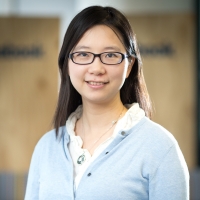Yuan Tian (Virginia) – When AI Meets Privacy: Building Privacy-preserving AI Systems
Computing is undergoing a significant shift. First, the explosive growth of the Internet of Things (IoT) enables users to interact with computing systems and physical environments in novel ways through perceptual interfaces (e.g., microphones and cameras). Second, machine learning algorithms collect huge amounts of data and make critical decisions on new computing systems. While these trends bring unprecedented functionality, they also drastically increase the number of untrusted algorithms, implementations, interfaces, and the amount of private data processed by them, endangering user privacy. The pressing question is how to protect user privacy with utility/performance preserved in machine learning? The challenges are two folds: (1) how to improve user privacy in light of the rapid advancement of AI; (2) how to prevent the existing AI from leaking private user data.
In this talk, I’ll introduce my work on protecting user privacy in machine learning systems from practical applications to theoretical frameworks. First, I will use conversational AI systems to show our research in identifying privacy violations with machine learning. Second, I will talk about our research for building scalable and accurate privacy-preserving machine learning systems. I will present our work CryptGPU, the first privacy-preserving secure Multi-Party Computation framework fully implemented on the GPU, which scales to modern large models and datasets.
Speakers
Yuan Tian
Yuan Tian is an Assistant Professor of Computer Science at the University of Virginia. Before joining UVA, she obtained her Ph.D. from Carnegie Mellon University in 2017 and interned at Microsoft Research, Facebook, and Samsung Research. Her research focuses on developing robust, privacy-preserving, and fair machine learning algorithms and systems, as well as using machine learning to solve security and privacy problems in emerging computing platforms. Her work has real-world impacts as countermeasures and design changes have been integrated into platforms (such as Android, Chrome, Azure, and iOS), and also impacted the security recommendations of standard organizations such as the Internet Engineering Task Force (IETF). She is a recipient of Google Research Scholar Award 2021, Facebook Research Award 2021, NSF CAREER award 2020, NSF CRII award 2019, Amazon AI Faculty Fellowship 2019, CSAW Best Security Paper Award 2019, and Rising Stars in EECS 2016. Her research has appeared in top-tier venues in machine learning, security, and systems. Her projects have been covered by media outlets such as IEEE Spectrum, Forbes, Fortune, Wired, and Telegraph.












